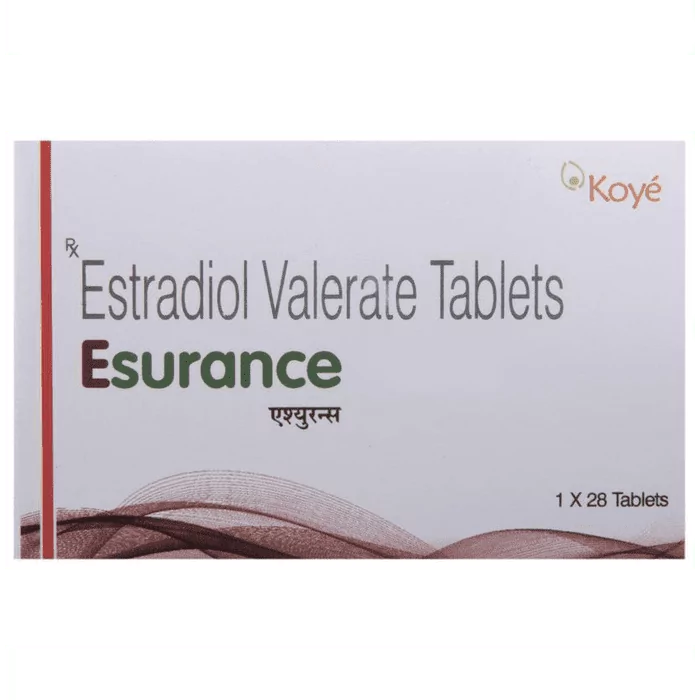Estrogen is a hormone that has a significant role in the bodies of both males and females.
However, as women enter Menopause, their reproductive functions decline gradually.
This happens mainly due to reduced Estrogen production from the ovaries.
But if not from the ovaries, where does Estrogen come from after Menopause?
Let us delve into this frequently asked question about Estrogen production after Menopause.
The Importance of Estrogen
Estrogen is a vital hormone responsible for sexual development among females.
It regulates menstrual cycles, aids in breast development, and supports pregnancy among women.
Besides these reproductive aspects, Estrogen also plays an important role in numerous non-reproductive health aspects.
These include maintaining the health of your bones, heart, and skin.
Also, Estrogen is essential for proper brain development for both males and females.
Therefore, it is important to always ensure a proper balance of Estrogen in the body.
Save up to 90% on your medicine bills

Progynova 2 mg

Oestrogel 2.5 gm / 1.5 mg

Estrabet 2 Tablet

Esurance Tablet
Where Does Estrogen Come From After Menopause
 Source: tumsasedgars_from_Getty
Source: tumsasedgars_from_GettyBefore the onset of Menopause, ovaries are the main source of Estrogen production among females.
But as a woman reaches Perimenopause, the supply of Estrogen from the ovaries reduces significantly. This leads to a lack of Estrogen in the body.
This Estrogen deficiency is the primary cause behind most Menopause symptoms, including hot flashes, weight gain, and acne.
However, Estrogen is still produced after Menopause at various sites within the body in low quantities.
Fat tissues are a primary source of site-specific Estrogen production after Menopause.
Additionally, Estrogen is also produced in the adrenal glands and the brain.
However, it’s crucial to understand that Estrogen production in these specific tissues does not significantly increase overall Estrogen levels in the body after Menopause.
Consequently, many women still experience Estrogen deficiency, leading to the discomforting symptoms of Menopause.
Also, a lack of Estrogen increases the risk of conditions such as Osteoporosis and cardiovascular issues.
How to Restore Estrogen After Menopause
 Source: bit245_from_Getty_Images
Source: bit245_from_Getty_ImagesAs discussed above, the amount of Estrogen produced in the body after Menopause is minimal.
Therefore, it is important to seek medical help from a certified doctor to restore healthy levels of Estrogen after Menopause.
Your doctor may suggest undergoing Hormone Replacement Therapy (HRT). This therapy supplements hormones to mimic the action of Estrogen in the body.
Additionally, they may also prescribe certain Menopause medications if you experience any severe Menopause symptoms.
You may also benefit from exploring additional supplements such as Vitamin D or Calcium to address the hormonal imbalances.
If you wish to learn more about the supplements available for Menopause, read Menopause Supplements: A Guide to Effective Relief.
Conclusion
Estrogen is an essential hormone responsible for various reproductive and non-reproductive bodily functions.
After Menopause, the female body gradually stops Estrogen production from the ovaries.
Therefore, people often get confused and ask, “Where does Estrogen come from after Menopause?
The answer is- even when the ovaries stop producing Estrogen, the hormone is still produced at various sites within the body.
However, this tissue-specific production of Estrogen happens in low quantities.
This is why several women experience discomforting symptoms as they reach Menopause.
To effectively deal with such symptoms, it is crucial to maintain the natural Estrogen balance in the body.
Therefore, it is advised to consult a doctor to seek proper medical attention.

Frequently Asked Questions
Do the ovaries still produce Estrogen after Menopause?
Yes, the ovaries produce Estrogen after Menopause, but in reduced quantities.
Also, small amounts of Estrogen are produced by other body parts, like fat cells and the adrenal glands.
What is the best natural replacement for Estrogen?
Phytoestrogens, found in certain plant-based foods like soy, flaxseeds, and legumes, can be a natural Estrogen replacement in the body.
Incorporating these foods into your Menopause diet may help alleviate symptoms for some women.
What are the symptoms of too much Estrogen?
Symptoms of too much Estrogen may include irregular menstrual periods, bloating, breast tenderness, mood swings, and headaches.
Consult with your doctor for proper management of your symptoms.
What happens to eggs after Menopause?
After Menopause, the ovaries cease to release eggs.
The remaining eggs in the ovaries gradually decrease in number and quality over time, resulting in the end of a woman’s reproductive capabilities.
Can periods stop suddenly in Menopause?
Yes, periods can stop suddenly in Menopause.
Although periods stop gradually in most cases of Menopause, some women may experience a sudden end to their menstrual cycle due to various individual factors.
Cheap Medicine Shop only refers to credible, authoritative sources for our content. If you’re curious about how we ensure the integrity of our content, we encourage you to read our Content Information Policy.














